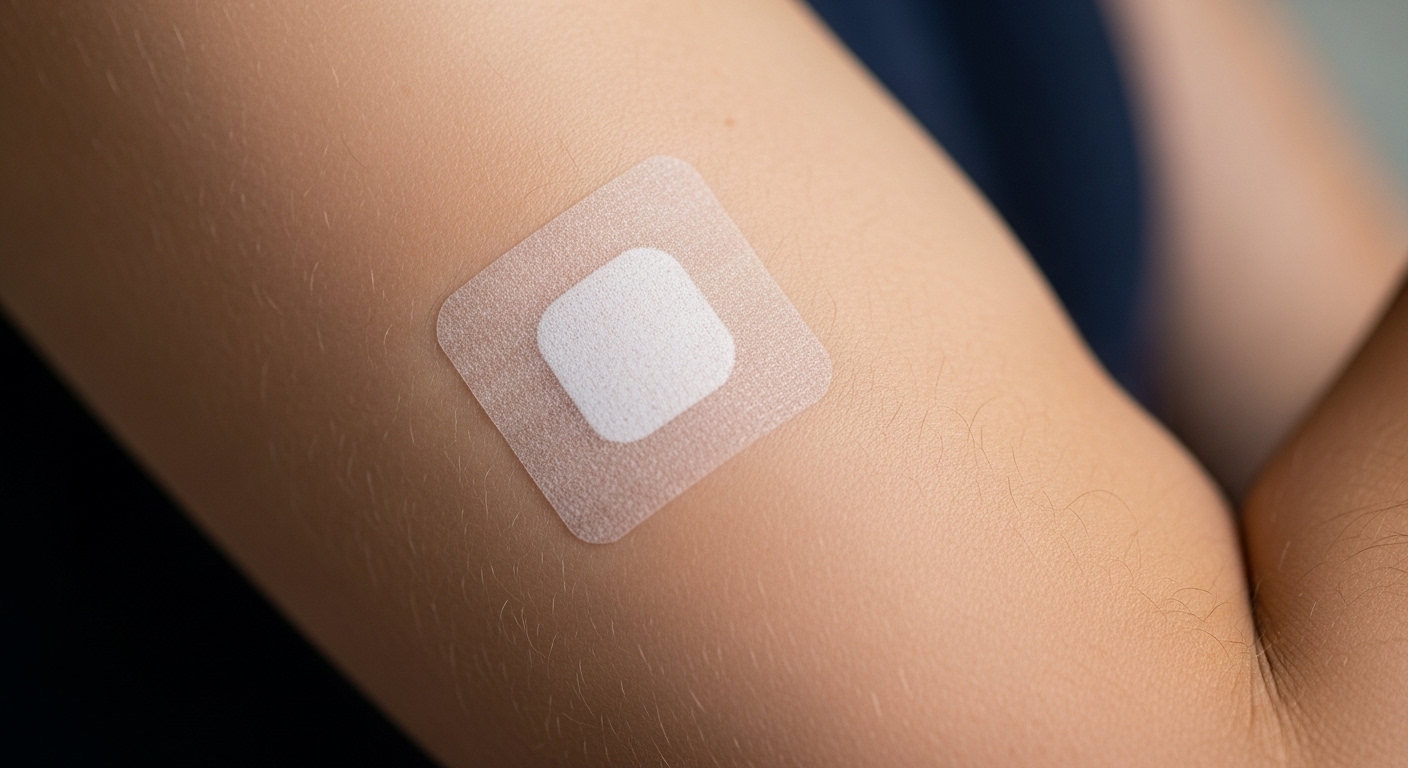Dr. Kumar’s Take
This 6 month trial asked a simple question: can a nicotine patch help thinking in people with mild cognitive impairment. The answer is a careful yes for test scores and a no for overall clinical change. People on nicotine showed better attention and some memory on computer tests. Clinicians did not rate patients as clearly better in daily life. Side effects were mostly mild.
My bottom line: this is interesting biology, not a green light for self treatment. If you or a loved one has memory concerns, focus first on proven pillars like sleep, exercise, blood pressure control, and hearing support. If you are curious about research use of nicotine, talk with your clinician and avoid over the counter experiments.
Key Takeaways
✔ Nicotine patch improved attention and some memory measures over 6 months in adults with amnestic MCI.
✔ Clinician global ratings did not show a clear overall improvement.
✔ Safety was generally good, with more mild GI and neurologic side effects, small weight loss, and a modest drop in systolic blood pressure.
✔ This was a pilot study with 74 randomized and 67 completers. Results need confirmation in larger, longer trials.
Actionable Tip
If memory changes are new, get a full medical workup. Build a weekly routine that protects brain health: brisk walking 150 minutes, strength training twice, 7 to 8 hours of sleep, hearing check, social time, and Mediterranean style meals. Discuss any interest in clinical trials with your doctor rather than starting nicotine on your own.
Study Overview: Nicotine Patch in MCI
A double blind, placebo controlled trial tested transdermal nicotine in nonsmoking adults with amnestic mild cognitive impairment across three centers. Participants used a patch titrated to 15 mg per day over 3 weeks and stayed on treatment for 6 months. The main goal was to see if attention improved on a standard test, and to track safety.
Methods and Trial Setup
- Design: 6 month, randomized, double blind, placebo controlled pilot.
- People: 74 randomized, 39 to nicotine and 35 to placebo. 67 completed. Mean age about 76.
- Dose: Nicotine patch titrated to 15 mg per day; placebo patch in control group.
- Primary outcomes:
- Attention: Conners Continuous Performance Test variability.
- Clinician global impression of change.
- Secondary outcomes: Computerized cognitive battery, paragraph recall, digit symbol, patient and informant ratings.
- Key exclusions: Current tobacco or nicotine use, major psychiatric disease, centrally active cholinergic or anticholinergic drugs.
Results: Attention and Memory Changes
- Primary attention outcome improved with nicotine vs placebo by 3 and 6 months. Effect size was moderate.
- Clinician global impression did not show a significant difference between groups.
- Secondary cognition:
- Better delayed word recall and less forgetting from immediate to delayed recall with nicotine.
- Trends toward better speed and accuracy on several tasks.
- An exploratory signal suggested APOE4 double carriers might get more attention benefits, which needs replication.
- Safety signals:
- More mild adverse events in nicotine group, mostly GI or neurologic.
- Small weight loss average about 1 to 2 kg by mid study.
- Systolic blood pressure decreased modestly vs an increase in placebo.
- No withdrawal and no ongoing nicotine use after the trial.
How Nicotinic Stimulation Might Help Thinking
Nicotine activates α4β2 and α7 nicotinic acetylcholine receptors in the brain. These receptors help control attention, working memory, and processing speed. In MCI and Alzheimer disease, nicotinic receptors are reduced. Stimulating remaining receptors may boost signaling in attention and memory networks. This can lift test performance even if daily function does not clearly change over 6 months.
Strengths and Limits
Strengths: randomized, controlled, 6 month duration, detailed cognitive batteries, careful safety tracking.
Limits: modest sample size, pilot design, no significant change in clinician global ratings, nonsmokers only, not powered to study real world functioning or disease progression.
Practical Counseling: If You Ask About Nicotine
- Nicotine is not a standard treatment for MCI.
- It can cause nausea, sleep issues, dizziness, increased heart rate, and dependency risk in other settings.
- There are many low risk, high yield steps with stronger evidence: exercise, BP control, diabetes prevention, hearing aids when needed, sleep apnea treatment, social engagement, and cognitive training.
- Consider clinical trials instead of self use.
Related Studies and Research
Nicotine Patch in Parkinson’s Disease Trial – Investigates nicotine’s effects in Parkinson’s patients with cognitive symptoms.
Nicotine and Cognitive Function: Systematic Review – Looks at how nicotine influences various aspects of cognition.
Nicotine and Mitochondrial Damage: Study Review – Discusses oxidative stress and mtDNA damage linked to nicotine.
Podcast: Why This Neurosurgeon Will Never Use Nicotine – A breakdown of nicotine’s true effects on the body and brain.
Frequently Asked Questions
How long would it take to notice any effect if it worked?
In this study, attention changes appeared by 3 months and were still present at 6 months. Daily life ratings did not clearly improve.
Is the nicotine dose the same as for smoking cessation?
The 15 mg per day used here is within the range of smoking cessation patches, but the schedule and goals are different. Do not start without medical guidance.
Did people get addicted or have withdrawal?
No withdrawal was reported, and no one kept using nicotine after the study. This does not mean addiction risk is zero outside a trial.
Who might benefit most?
Exploratory analysis hinted at stronger attention benefits in APOE4 double carriers, but this needs confirmation. Personal medical risks must be considered.
Conclusion
Transdermal nicotine improved attention and some memory scores in older adults with MCI over 6 months, but did not produce a clear overall clinical improvement. Safety was acceptable in this setting, with mostly mild side effects. These findings support more research, not routine use. For now, stick with proven brain health strategies and discuss any research options with your clinician.


